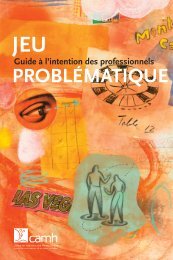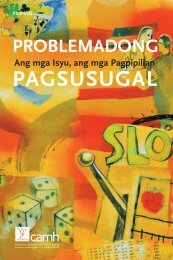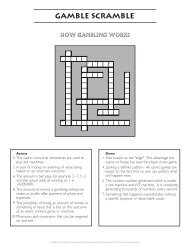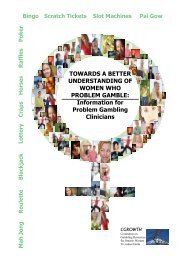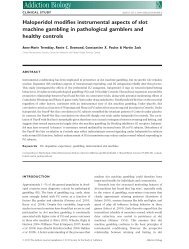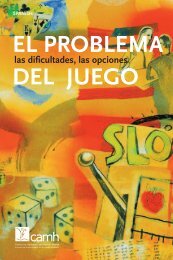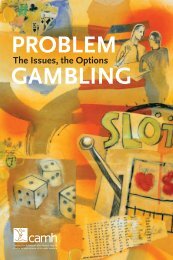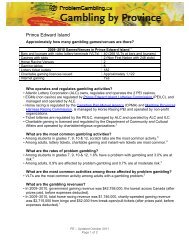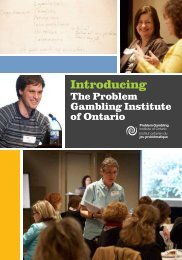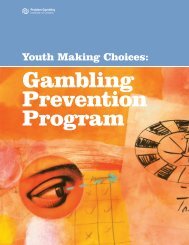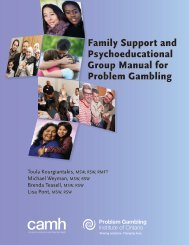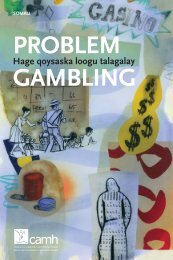Problem Gambling: A Guide for Helping Professionals
Problem Gambling: A Guide for Helping Professionals
Problem Gambling: A Guide for Helping Professionals
Create successful ePaper yourself
Turn your PDF publications into a flip-book with our unique Google optimized e-Paper software.
<strong>Problem</strong> <strong>Gambling</strong> Treatment Services<br />
By focussing on clients’ identified concerns, strengths and solutions—<br />
and by helping them set short-term, achievable goals—counsellors<br />
inspire hope and a sense that change is possible. When ambivalence<br />
is high, a brief solution-focussed approach may be most effective in<br />
increasing awareness, building trust and engaging the client in a<br />
therapeutic relationship.<br />
Harm reduction is a common counselling approach. Counsellors help<br />
clients assess their gambling and reduce the negative impact it is<br />
having on their lives. This is a method of reaching clients who are at<br />
all stages of change, and it respects clients’ right to choose their own<br />
goals. Some people who gamble choose to set time and money limits,<br />
or to stay away from gambling activities that cause them the most harm.<br />
Others decide that the only solution to their problem is abstinence<br />
and stop gambling completely.<br />
Using motivational interviewing, problem gambling counsellors provide<br />
accurate in<strong>for</strong>mation, advice and support that helps clients assess the<br />
harm gambling is causing and decide what is right <strong>for</strong> them. <strong>Problem</strong><br />
gambling counsellors will often encourage clients to take a break<br />
from gambling in order to assess its impact and gain control.<br />
<strong>Problem</strong> gambling counsellors can help clients:<br />
Gain Control over <strong>Gambling</strong><br />
Using cognitive and behavioural techniques, clients learn to control<br />
gambling triggers, patterns and urges and to plan ways to stay in control<br />
of their gambling. Counsellors may help clients identify faulty beliefs<br />
about gambling, such as the role of skill, the odds of winning, randomness<br />
and their ability to influence outcomes. Counselling helps clients<br />
uncover and explain those faulty beliefs in a way that helps them<br />
understand their urge to gamble and gain life-long control.<br />
37



